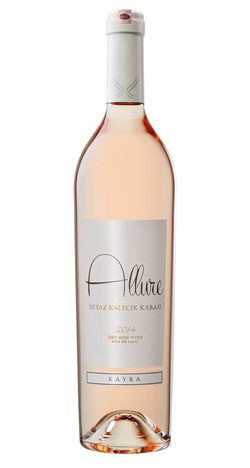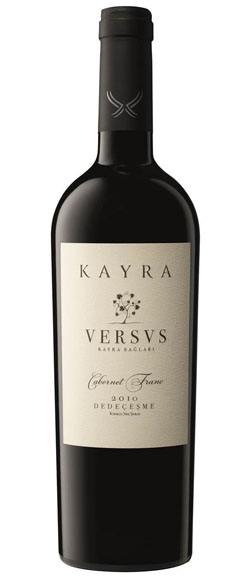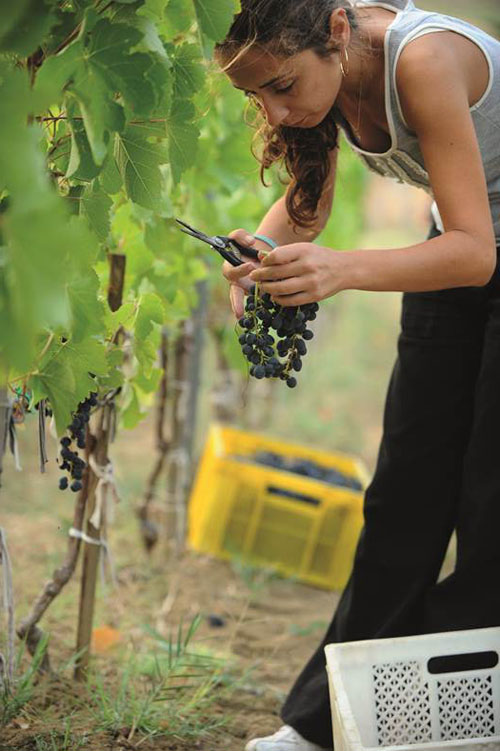Wines from Turkey: a guide to the best
With Turkish wineries employing viticulturists from abroad to develop their vines, the country is now a serious contender on the international wine stage, says Roger Jones of the Harrow at Little Bedwyn
Things have certainly come a long way in Turkey since then, with a remarkable evolvement in its wine industry. Using both natural, local grape varieties and the more common world-renowned varieties, such as Sauvignon, Chardonnay and Cabernets, one can really see some good-quality wines coming from Turkey.
Many wineries have employed foreign viticulturists and oenologists to develop their vines and wines. Retraining and educating the locals has also been a necessity.
Winery spotlight: Kayra
Kayra is a pretty serious enterprise, with vineyards scattered all over the wine-growing regions of Turkey. It is led by Daniel O'Donnell, who has over 20 years' experience, hopping from California to Italy to Australia and Chile before coming to Turkey. He considers Turkey's grapes to be a "national treasure, and something I truly believe in; never before have I been so enchanted and excited by a single grape than I am with Á–kÁ¼zgÁ¶zÁ¼ [see below]."
O'Donnell has been working with Kayra for fours years, specifically to introduce Turkey's indigenous grapes to the world. These wines can be matched with an array of foods - including Chinese. I tried a selection with a meal at Hakkasan.
Allure Kalecik Karasi White 2014
The label reads 'dry rose wine', but this is more blush, like a vin gris, with a delicate colour and notes of tangerine, kaffir lime, sweet pink grapefruit and unripe English strawberries. It's a fantastic mouthful of early summer, with fresh and clean bursts of tantalising flavours. This was great with dim sum scallops and soft-shell crabs.
Allure Kalecik Karasi Rose 2014
Bright, strawberry-pink, glowing colour - this is definitely a rose. With notes of raspberry and a hint of celery salt, this wine is savoury and more butch than the colour implies. It's also lusciously creamy mid-palate.
Kayra Narince 2014
Narince means delicate and this wine tastes of fresh citrus, lemon and mandarin, and is clean, fruity and bright.
Kayra Versus Á–kÁ¼zgÁ¶zÁ¼ 2013
This is a silky smooth, pure wine with a soft, perfumed nose. It is very focused with hints of wild herbs, blackberries, cranberries and black cherries, and was perfectly matched with Hakkasan's black truffle roasted duck with tea plant mushroom.
Kayra Buzbag Reserve 2012
Perfumed and with a touch of cedar wood, this fascinating wine is clean and bright and lingers wonderfully on the palate. Soy sauce and Marmite flavours are balanced by fruit.
Kayra Imperial Cabernet Merlot 2009
This wonderfully balanced, delicate wine has notes of clean, soft berries dancing on the palate, plus bilberries, spices and a luscious finish.
Kayra Versus Cabernet Franc 2010
Pure Cabernet Franc is hard to get right, but this ticks all the right boxes. This is my favourite wine from the Kayra stable, and it has an intensity of bilberries, blueberries and delicate cedar wood, plus violets and wild flowers. The purity of the flavour is fantastic. This went well with a classic Hakkasan dish of spicy prawns with lily bulb and almond with jasmine rice.
Winery spotlight: Sevilen
The Aegean region accounts for over half of all the wine produced in Turkey. Soils include chalk and shale (heavy clay) with some limestone. Sevilen is now run by the third generation of a Bulgarian immigrant family, who have brought in advanced techniques and tied them with
their traditional hand-harvesting and double-sorting, which ensures excellent grape quality.
Sevilen employs a French consultant from Bordeaux, and it certainly shows in its wines, with its top wine, Fume Blanc 900, similar to white Bordeaux. It also produces a Sauvignon Blanc, Isabey Sauvignon Blanc, with lots of New World charm.
Sevilen produces a huge variety of styles and wines to fit every pocket and palate, but for me its Sauvignon Blancs, especially the Fume Blanc, are the standout drinks.
Winery spotlight: Vinkara
Based in the Kalecik region, north east of Ankara, this winery produces some pretty amazing wines, especially under the Reserve label. This series of wines has been produced in limited volumes from high-quality grapes, aged for 14 months in 225-litre French barrels.
Italian Marco Monchiero joined the company as a consultant in 2008. Monchiero was especially impressed that a variety of grape was named after the region. He says: "This shows that the region is seeded in tradition and culture, and that the vineyard is linked to a wine-making tradition. As a result, my curiosity was piqued and I was convinced about working here. In Italy, we call these regions "the land blessed by God'."
The microclimate created as the result of the mountains surrounding Kalecik makes it one of the most important centres for viticulture in Turkey. Because there is a big difference between day and night temperatures, the grapes have a distinctive taste and aroma. Irrigation in summer and heat in the winter are provided by the Kızılırmak river.
Vinkara Reserve Narince 2011
This wine is aged for 14 months in oak barrels before careful cellaring, and exhibits bright acidity with buttery flavours, clean, luscious, tropical fruit, ripe apricots and pink grapefruit. Many Narince wines are light and fresh drinking, but this is a more serious contender.
Vinkara Reserve Chardonnay 2012
This is a wine that first got me involved in listing Turkish wines, which I first tried while on holiday in Kalkan. This oak-aged Chardonnay delivers a fragrant tropical nose of bright unwaxed lemon and is crisp on the palate to cut through the soft, buttery banana flavours. It has additional notes of white flowers and buttercups - a lovely, delicate wine.
Vinkara Reserve Kalecik Karasi 2011
Aged in Burgundy barrels for 14 months and then cellared for further years, this wine completely blew me away. A very racy Burgundian style with forest-floor depth lifted by some
fantastic bright fruits, strawberries and sweet cherries. A long and luscious aftertaste.
The grapes of Turkey
Bogazkere
With its unique flavours, Bogazkere produces noticeable aromas of black cherries and raspberries, blackberries, black mulberries,
figs, black olives, black pepper, cloves, eucalyptus, mint and earthy and gamey notes.
Food match: An excellent companion for rich, succulent game and strong, aged cheeses.
Á–kÁ¼zgÁ¶zÁ¼
The rising star and one of the most important grapes in Anatolian viticulture, Á–kÁ¼zgÁ¶zÁ¼ has aromas of dark and sour cherries, raspberries, pomegranates, cranberries, black mulberries, blackberries and eucalyptus.
Food match: Pairs well with rich meat dishes, mushroom or cream sauces, salamis, aged, dried cheeses and simple grilled meats.
Kalecik Karası
This is a native grape famous for its aroma and flavour, similar to Pinot Noir. It originates from the Kalecik district, although the grape is widely produced throughout Anatolia and the Aegean region. It has aromas of cherries, strawberries, raspberries and cranberries.
Food match: Excellent with grilled fish, wild mushroom risotto and dim sum.
Narince
Famed for its delicacy, Narince produces rich, creamy and elegant wines. Due to their balanced acidity, these wines are suitable for aging and acquire a rich and complex bouquet. They create delicate floral aromas in youth.
Food match: Pairs well with grilled mackerel, sardines, spicy food and aubergine dip.
Emir
It produces vigorous, dry wines with high acidity and mineral aromas of melon, pear, yellow apple, pine and eucalyptus that reflect the characteristics of the volcanic soil it grows on.
Food match: Perfect with shellfish, oysters, sashimi and light pasta dishes.
Bornova Misketi
Locally known as Bornova Misketi, this Muscat grape is grown in and around the Aegean city of Izmir. It displays the characteristic flavour and aromas of Muscat (tropical fruits, flowers, citrus, thyme and bay leaves).
It produces quite aromatic, lively, light, easy-drinking and dry to lusciously sweet wines that are light gold in colour and reminiscent of honeysuckle, basil, roses, mint, honey, bergamot, lemon balm, orange flowers, grapefruit and melon.
Food match: Dry Muscat is an excellent aperitif, especially with dim sum. Sweet Muscat goes very well with blue cheese.
Continue reading
You need to be a premium member to view this. Subscribe from just 99p per week.
Already subscribed? Log In













